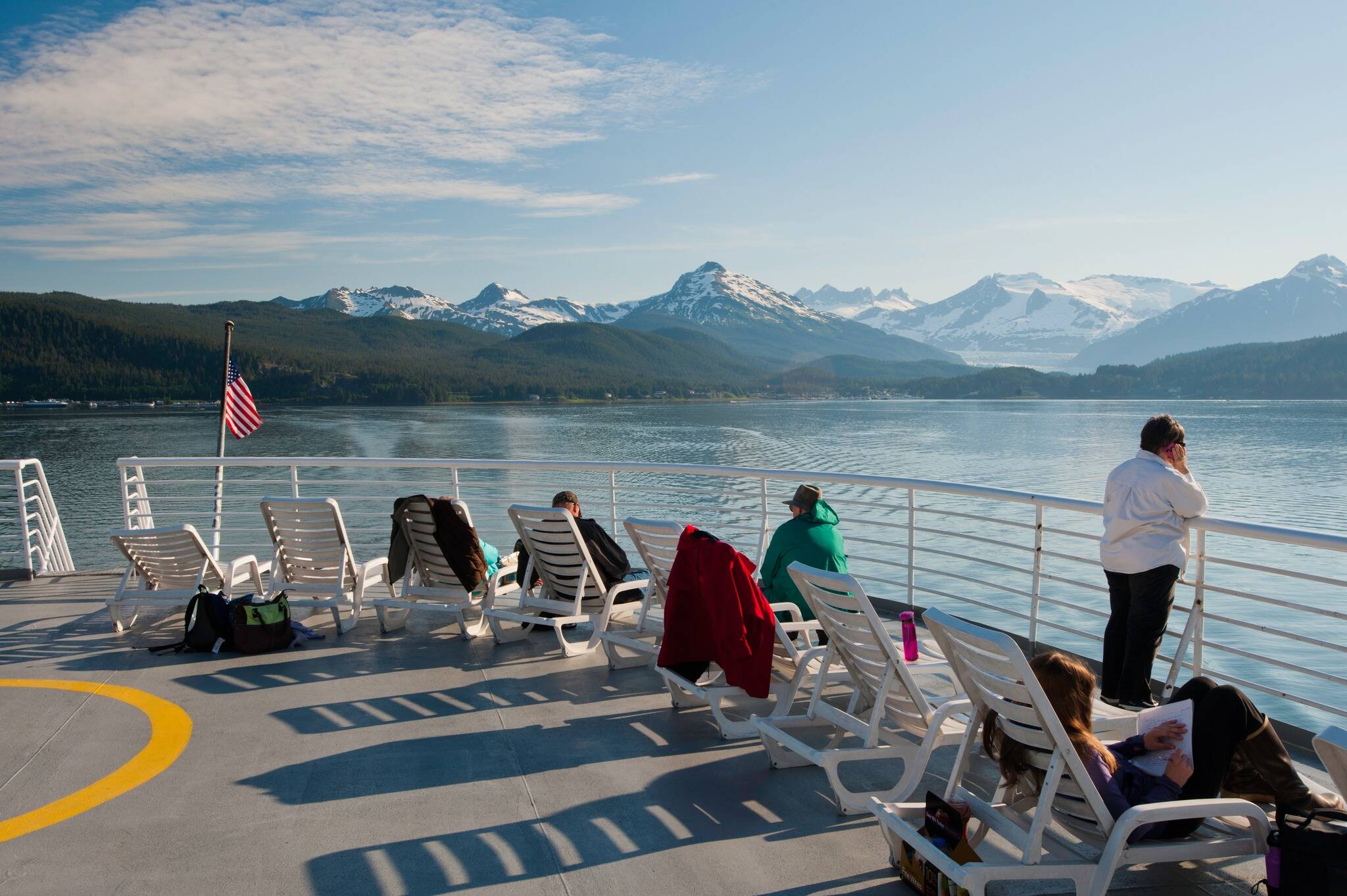No ferry service is scheduled in January and February for four Southeast Alaska communities, the entire Southeast Alaska region, and cross-gulf sailings that will affect those travelling to Juneau for the legislative session, according to the winter scheduled release last week by the Alaska Marine Highway System.
But the officially posted schedule isn’t actually quite the final schedule, with an update in mid-October expected to add limited service to one of the four Southeast communities, according to an AMHS spokesperson. Also, private ferry providers are expected to be contracted to provide some level of service to the other Southeast ports.
Kake, Pelican, Angoon and Tenakee Springs are omitted from the schedule those months, while Gustavus and Hoonah will each get a single day of service. State transportation officials said efforts to minimize gaps in winter service were made based on feedback following the release of a draft schedule last month, while taking into account vessel maintenance and worker shortages that are impairing availability.
“Service has been added to accommodate coastal communities’ special events to the greatest extent practicable,” a news release from the state Department of Transporation and Public Facilities states. “The department will also contract supplemental service if needed to cover service disruptions.”
The most definitive pending addition is the Tazlina, which is expected to provide some of the service in January and February normally offered by the LeConte while it is overhauled, said Sam Dapcevich, a DOT spokesperson. He said limited crew availability means the Tazlina will operate only four days a week, but it will likely mean Angoon is added as winter port stop in addition to boosting the number of sailings to Gustavus, Hoonah, Haines, Skagway and Juneau.
“By mid-October we’ll know,” he said.
While the LeConte makes stops in Pelican and Tenakee Springs, but not Kake, the Tazlina cannot travel to the three communities during January and February, Dapcevich said.
“It cannot dock in Pelican, it can’t run to Kake because it’s too far…and in the past I think we’ve had some issues with running to Tenakee,” he said, noting the latter is also due to the length of the trip exceeding what crews are allowed to work in a single day.
Kake is tentatively scheduled to receive a couple of stops from the Matinuska in February, according to Dapcevich.
Efforts are now underway to make sure communities not on the schedule aren’t cut off during January and February by arranging for private operators such as Goldbelt Inc. and Allen Marine Tours to provide service, as has been done in previous years, Dapcevich said. He said such sailings will be offered through the AMHS reservation system with no increase in fares.
Cross-gulf sailings during those months, which some people have relied upon to get themselves and their belongings to Juneau for the Alaska State Legislature, are not possible because the Kennecott is the only vessel capable of the trip, and it will be servicing the route between Bellingham and Southeast Alaska because the Columbia is not being put back in service as officials had hoped, he said.
The elimination of January and February service to Southwest Alaska is typical due to maintenance and certification required for the Tustumena that services the region, Dapcevich said.
State transporation officials also said this week they are implementing a new ferry program that will reintroduce flat fees rather than dynamic pricing this winter and subside alternative travel options during disruptions, but details on the latter are pending.
The return to flat fares is being praised by many commenters responding to official AMHS announcements online, although some are questioning if it’s a short-term change being made by Gov. Mike Dunleavy just before he faces reelection in November. His administration has been harshly criticized for large-scale cutbacks to the ferry system and efforts to privatize service during his first term.
Contact reporter Mark Sabbatini at mark.sabbatini@juneauempire.com


